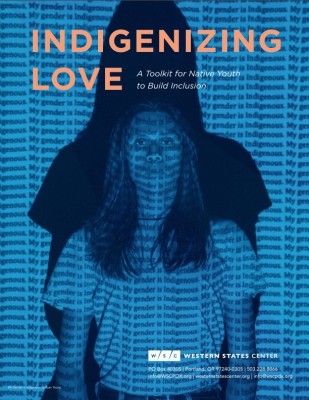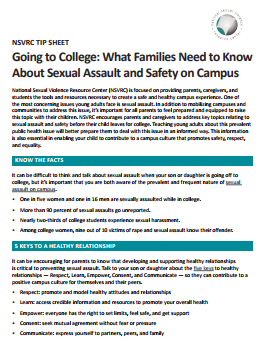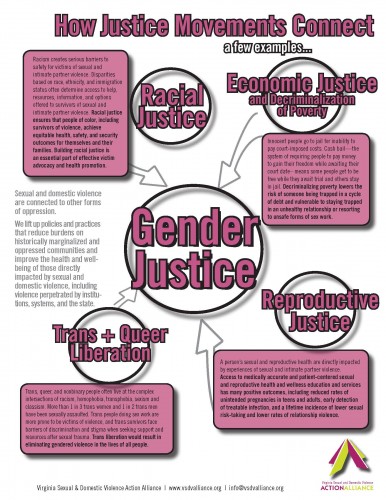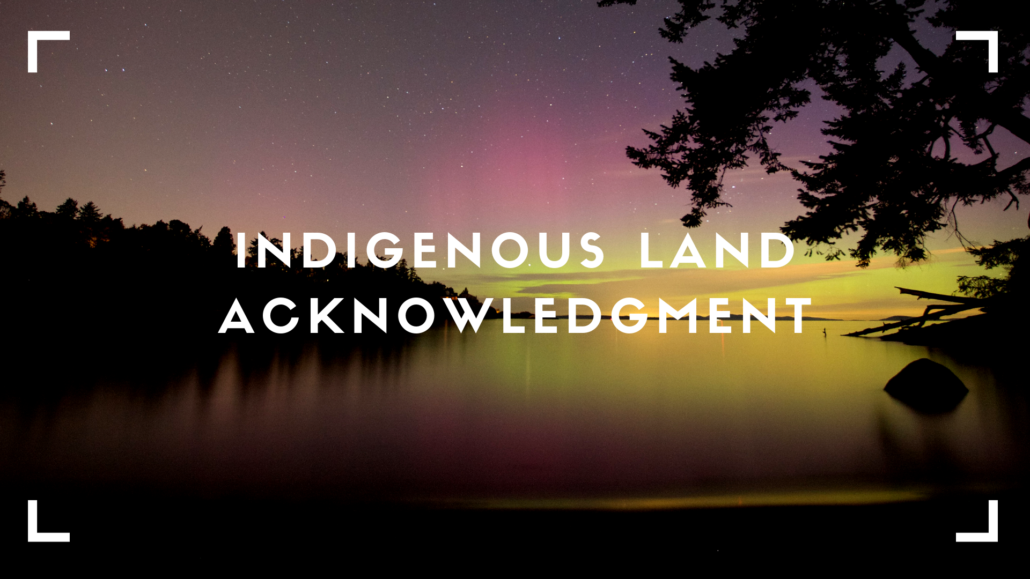Resources Library: Multidisciplinary
Start a Search:
Indigenizing Love: A Toolkit for Native Youth to Build Inclusion

In response to requests from American Indian and Alaska Native (AI/AN) youth, Western States Center partnered with the Affiliated Tribes of Northwest Indians, the Center for Native American Youth, and Native Youth Leadership Alliance to develop a resource toolkit for and with young Native leaders.
This toolkit is written to support Native youth, tribal communities, Two-Spirit and Native LGBTQIA+ collectives, community leaders, and partners who intend to better understand and support our Two-Spirit and LGBTQIA+ communities. Native youth have asked for more resources on relationship building, caretaking, and inclusion of the TwoSpirit community. They want to better understand the important and diverse ways that Two-Spirit relatives and community members have sustained practices of making relations in spite of and beyond settler colonial violence.
Indigenizing Love refers to the idea of understanding and reclaiming our Indigenous ways of life (including kinship systems, shared values, and expressions of love), and resisting centuries of imposed settler colonial practices, policies, and thoughts that devalue our rights to share Indigenous knowledge and thrive. To Indigenize Love, we are rebuilding connections, kinship and relationships, and strengthening our abilities to love and care for all of our relatives.
Indigenous land acknowledgement - Why is it important?
Native Governance Center co-hosted an Indigenous land acknowledgment event with the Lower Phalen Creek Project on Indigenous Peoples’ Day 2019 (October 14). The event featured many panelists: Dr. Kate Beane (Flandreau Santee Dakota and Muskogee Creek), Mary Lyons (Leech Lake Band of Ojibwe), Rose Whipple (Isanti Dakota and Ho-Chunk), Rhiana Yazzie (Diné), and Cantemaza (Neil) McKay (Spirit Lake Dakota). From this event, they created this handy guide to understanding Indigenous land acknowledgment and why it is so important, based on panelists’ responses.
Click here for more on indigenous land acknowledgement.
Native Governance Center is a Native-led nonprofit working to inspire, celebrate, and support Native nation building. They assist Tribal Nations in strengthening their systems of governance and their capacities to exercise their sovereignty. For more information and resources, visit their website at www.nativegov.org.
Info Sheet from NSVRC

Sexual assault is a widespread problem on college campuses. This tip sheet provides information for families to discuss regarding campus sexual assault as well as safety, consent, and healthy relationships. A list of questions to ask about how your child’s college handles sexual assault is also included.
Infographics: How Oppressive Systems Connect and How Justice Movements Connect

Gender-based violence (or the process of controlling, coercing, or otherwise exerting power over someone because of their gender) is both a tool and a driver of white supremacy. Ending gender-based violence requires us to see and dismantle the same forces that support the existence of white supremacy. At the same time, this work calls us to envision and work toward equity and liberation, while breaking out of silos.
The infographic, "How Oppressive Systems Connect" illustrates examples of how gender-based violence is driven by white supremacy, sexism, heterosexism, and capitalism. "How Justice Movements Connect" illustrates examples of how gender justice is supported by movements to build racial justice, economic justice, trans and queer liberation, and reproductive justice.
These resources are helpful for your prevention work, new staff orientation, volunteer training, board training, and other environments where you are exploring the many ways in which work to end sexual and intimate partner violence intersects with work to build racial justice, reproductive justice, economic justice, and trans and queer liberation.
Interactive Training Exercises on Abuse in Later Life
This manual provides instructions for 16 exercises focusisng on several key training points for multiple target audiences such as professionals from domestic or sexual violence agencies, elder abuse/adult protective services, aging, health care, justice, and others. It also provides ideas for exercises that trainers can adapt to meet the needs of many audiences.


